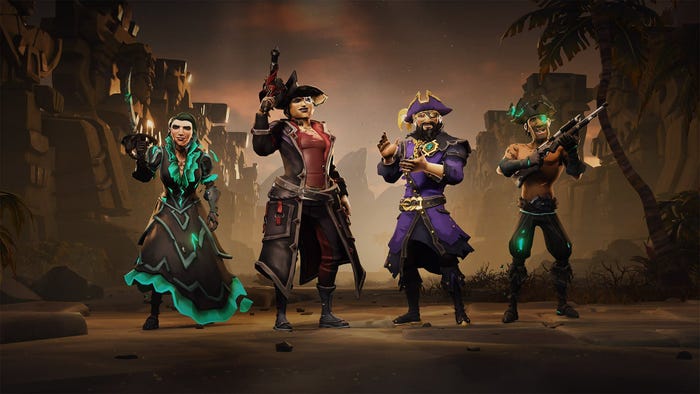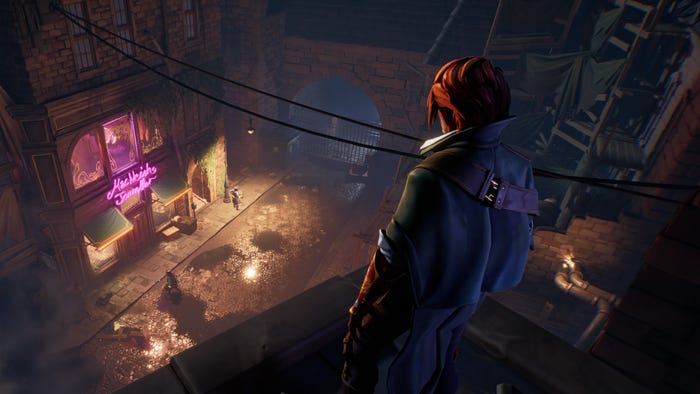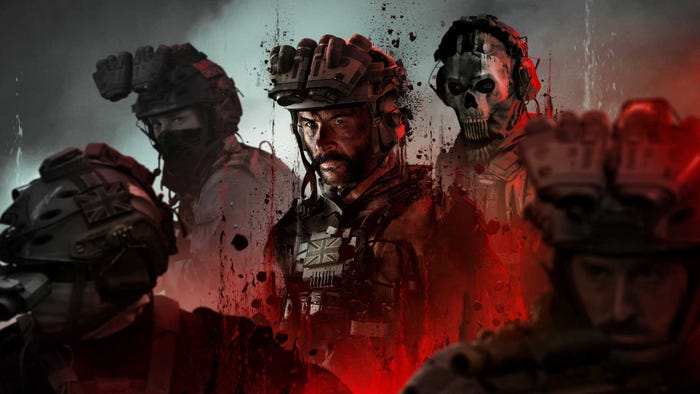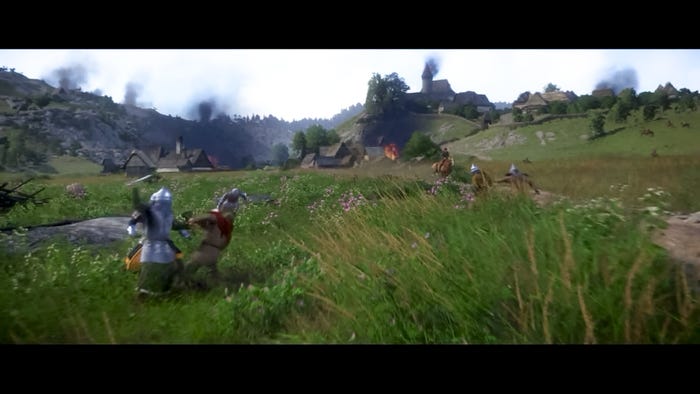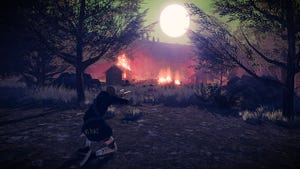If you're an indie considering taking your PR efforts into your own hands, here are five things you need to know -- including big mistakes many indies are making in our inboxes these days.

The indie "scene" has matured such that being independent is not necessary a raw, outlier move any more, but a viable avenue for doing business agilely, creatively and in a way that takes advantage of new, accessible platforms and funding models. That's why the question of whether indies need to hire PR agencies is so frequently-raised -- in the competitive but essential arenas of Steam, crowdfunding, and mobile, getting covered in the gaming press can be an important key to attaining the broader social media presence that helps build community and sow a potential trajectory toward popular success. But there are a lot of advantages for the media to working directly with indies and establishing a personal relationship. We're often kept at arm's length or worse from developers in the traditional system, rarely exposed to the fascinating trials and revelations that come with creating a game. A lot of our coverage comes from negotiating relationships with PR professionals who may want to tell a different story from the one we find most interesting, and playing by their rules can be frustrating. By talking with indie developers directly, games writers have a chance to learn more about game development, reveal more intimate and personal stories to our readers, and to experience the sense of discovery that comes with finding something magical but unsung, and bringing it to a wider audience. Working with a PR person or agency can have definite benefits for indies who may be less acquainted with the media landscape. Plenty of PR people are well-established as knowledgeable evangelists, and the media notices their clients, where those developers might have been just another name in a crowded inbox otherwise. But for indies that want to take their outreach into their own hands, knowing a few key things about how best to build a relationship with the gaming press can make all the difference. Here are some things to know about doing your own games PR that even public relations professionals sometimes get wrong.
We aren't doing you a favor
We love to champion the little guy or girl as much as anyone, and part of the joy in covering indies comes from stumbling upon an underdog story. We know this is your dream, and you've probably sacrificed a lot and devoted yourself significantly to making it happen. But we don't cover games to help you out, or because it's really important to you, or because you're a cool, hardworking person: We do it because you have an innovation to share, an interesting story to tell, or because you've gained insight through your small-team process that isn't widely shared and that other developers might find neat to know. We need interesting material for our articles, and that's it. Many indie pitches I've been getting these days include language like "it'd be great if you could help us get the word out," or "could you check out this link to our Kickstarter and Tweet it if you think it's cool?" The media isn't a public partner you charm into helping you promote your game. In fact, we tend to chafe a little at requests to post your trailer on our website (especially if we work for a site that doesn't do trailer posts, as Gamasutra does not do and never has). Asking us to act like a wire service -- pass this along, spread the word, help us promote our game -- not only alienates the press, but it minimizes what you could be getting out of us: The stories we'd tell or the enthusiasm we'd share if we actually got to talk to you or to play your game. A lot of the time I only get coverage requests from indies who are running out of time to reach a funding goal, and they're hoping some media coverage will give them that last financial push. That's not something most of us feel comfortable doing for you (outside of rare occasions where we were rooting for you anyhow). There's little I hate more than having my job reduced to "megaphone for your money-raising effort", and I suspect most of my colleagues feel the same. Consider that the games media is looking for cool developers to tell their readers about and interesting games to keep an eye on -- that's our job, not to give shout-outs or retweets or to do you a favor or to promote you or to bolster your funding effort.
Press materials aren't enough
If my inbox these days is to be believed, lots and lots of indies -- especially those who are on Kickstarter -- do press outreach by leading with a link to the Kickstarter page, or to the YouTube trailer, or ask us to download the images or press releases you've prepared. It's essential to include this information, but that's not the job done. Most of us have inboxes full of press releases and assets, and several deadlines during the day. We might not always have the time to do a thorough read-through of everything you sent. Emails should always be friendly, personal, succinct and catchy -- you have only a couple paragraphs to strike the press' interest. Some things that make us pay attention are if you or your collaborators have worked on other games we might know, if you have a unique process, tool or inspiration, or if you've tried something you don't think is widely done. You can do better than the old "It's like [Popular Game], only with [other feature]." Sometimes it does help to have a point of reference to compare your game to, but a lot of times when I read "It's like [Other Game]," my first reaction is "not original" -- I've already played or heard of the game you're mentioning, so why do I need to play and cover yours if its similarity is a main selling point? Tell us about yourself and what you think makes you and your game special. Bragging or arrogance is a turn-off, but it's not arrogant to confidently explain what you've got to offer. If you believe in yourself, we will, too. I've had indies pitch me by Tweeting at me and asking me to email them. I usually forget. You should make the writer do as little work as possible to get to what's exciting about you -- ideally you have it all ready to share in one message.
Know who you're pitching
Do you read the games press, and can you explain in brief what differentiates the kind of games coverage one site does from another? For example, Polygon loves to profile creators with a story behind them; Gamasutra likes designers with industry perspective and design insight to articulate, and there are some kinds of PC games that you can just tell are right for a Rock Paper Shotgun Q&A. I'm oversimplifying, but you should have an idea in mind of the kind of coverage you want, and tailor your communication to achieve it. Plenty of developers -- even big ones -- develop a wish list of where they want to be covered ("I want my game in these three big publications!") but don't think much about how they might appeal to those publications' audiences. Start instead with the kind of story you think might best help your game stand out or that truly represents you and your work, and then think about which outlets might be a fit. If possible, get an idea of which individual writers might be most interested in your game. I write about relationship games a lot, for example, so I always appreciate when a developer writes, "I know you're interested in games about relationships, so I thought my game might be your thing." Personal pitches go quite a long way, and increase the chance that you'll connect with someone who might genuinely appreciate what you're trying to do and provide enthusiastic, respectful coverage. It might seem like extra work to do research on games outlets and the people who write for them -- but that time is less likely to be wasted than if you carpet-bomb general information everywhere hoping that it sticks. That mass-mail probably won't even get read.
Have something to show
Contrary to popular belief, most games writers aren't doing their jobs in the hopes of scamming games companies for free copies of things. Whether we get review codes or not, we're up to our eyeballs in games we need to play. We know and understand that every sale is precious to an indie, but if you want us to cover your game, you have to make it easy for us to play it. I recently received a pitch where the indie promised I would get a free copy of the game in exchange for posting about a Kickstarter -- that's a pretty egregious error. Games writing isn't a contract with the developer to get something, and we generally can't know whether we want to write about your game until we play it. Yes, it's possible you might give a free download to a games journalist you never hear from again, but that's a risk you have to take. We lock horns often enough with huge marketers who dangle the privilege of access to their clients in a supposed exchange for good coverage. Indies can gain the upper hand by making it easy for us to have a look at your work. Have a demo or press build or review code on hand and make it clear you're excited to share it if the journalist is interested. If your game is too early for a demo or press build, consider whether it's too early to seek press. Major games publishers have sort of trained the consumer press to a news cycle that's attuned to their announcement schedule, but the rules are different for Nintendo, Rockstar Games, or some long-anticipated AAA sequel than they are for you. A GTA V trailer is worth its own post to most big games sites; a trailer of your first game, sadly, generally isn't, no matter how cool it is. For indies, your game should be well enough along that it shows its strengths best, even if you have more tailoring to do or further elements to add. We see games in various states of completion all the time, so we understand how to evaluate a game in the context of where in the process it is. But where major publishers' games will often get several events leading up to release for us to see them, usually (unless we have an existing relationship with a developer) indies only get that one shot, so consider whether your build is ready to show the core of your game at its best. If your planned public demo event would consist mostly of "we'll be adding that later," maybe wait til later.
Don't imitate the big guys
I've already pointed out some ways the press cycle for an indie is going to be different than that of some huge franchise, but it's an important point to drive home: Many indies, particularly those that have worked at bigger studios in another life, operate based on a loose idea of how the industry "does things", which includes teasing "exclusives," issuing formally-penned press releases, or typing "MEDIA ALERT" in the subject headline. A few of these things are useful for when a big company is dealing with a big media organization, but most of them are odd rituals that persist because people assume they confer urgency or professionalism, and not because they're useful to the people involved. You're indie because you don't want or need bureaucracy. Don't worry about putting out a press release on time, artificially enforcing some embargo, or trying to promise an "exclusive" (as an indie you want all the coverage you can get, not to exclude anyone). You should absolutely only talk about what you feel confident and prepared to talk about -- it's fine to say "we're not ready to share that now," but never distance writers who are curious about you based on an arbitrary idea about being unavailable. When in doubt about what you should do, the right answer is always what works best for you and your game, not what you presume is expected or what you have seen others do. Simply being confident, candid and accessible is the best way to engage the media around your work.
About the Author(s)
You May Also Like



